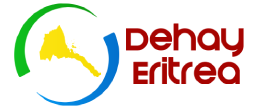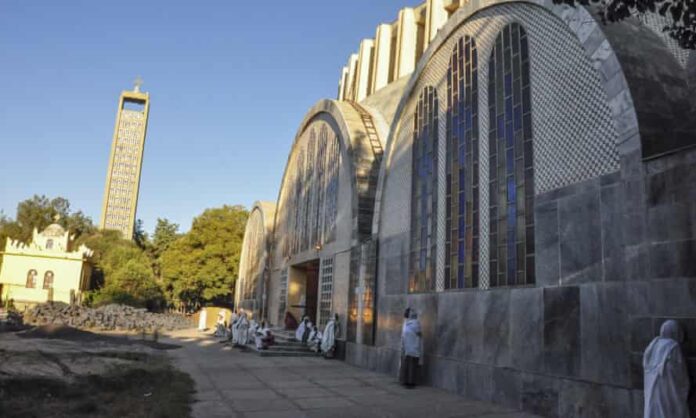Hundreds of unarmed civilians were massacred in less than 48 hours by Eritrean troops during the war in the restive northern Ethiopian province of Tigray last year, Amnesty International has said.
The soldiers systematically killed hundreds of civilians in the northern city of Axum, opening fire in the streets and conducting house-to-house raids in a massacre that may amount to a crime against humanity, it said in a report.
Investigators from Amnesty International spoke to survivors and witnesses who described extrajudicial executions, indiscriminate shelling and widespread looting after Ethiopian and Eritrean troops led an offensive to take control of the city during the conflict with the Tigray People’s Liberation Front (TPLF) in mid-November.
Reports of a massacre in Axum have been emerging in recent weeks, along with unconfirmed allegations of looting, killings and rapes elsewhere in Tigray during the war. Amnesty said satellite imagery analysis supported reports of indiscriminate shelling and mass looting in Axum, and appeared to reveal the sites of new mass burials near two of the city’s churches.
“The evidence is compelling and points to a chilling conclusion. Ethiopian and Eritrean troops carried out multiple war crimes in their offensive to take control of Axum. Above and beyond that, Eritrean troops went on a rampage and systematically killed hundreds of civilians in cold blood,” said Deprose Muchena, Amnesty International’s director for east and southern Africa.
Ethiopian authorities have not yet responded to Amnesty’s allegations but issued a statement on Friday referring to “complex challenges in the region” and reasserting their intention to arrest senior members of the TPLF, which it described as a criminal “rogue group”.
“The government of Ethiopia will continue bringing all perpetrators to justice following thorough investigations into alleged crimes in the region through our federal institutions … The government of Ethiopia once again reiterates its commitment to enabling a stable and peaceful region in which its citizens’ needs are met and impunity does not prevail for perpetrators of crimes against humanity and crimes against the state,” the statement said.Ethiopia’s prime minister, Abiy Ahmed, launched the military campaign on 4 November, accusing the TPLF of attacking federal military camps in Tigray and seeking to destabilise the country. Communications to the northern state were cut and journalists and humanitarian organisations were denied access.
Abiy, who won the Nobel peace prize in 2019 for making peace with neighbouring Eritrea, declared victory against the TPLF after federal troops seized the city of Mekelle in late November, and said no civilians had been killed. His government denies the presence of thousands of soldiers from Eritrea.
Eritrea was at war with Ethiopia until Abiy did a peace deal with Isaias Afwerki, the dictatorial president of the small, secretive coastal state, in 2018. Afwerki has seen the TPLF as an enemy for decades and appears to have collaborated in the offensive of last year. The exact extent of the cooperation remains unclear, though Abiy has admitted some degree of assistance.
Yemane Meskel, the Eritrean minister of information, said his country categorically rejected the “preposterous accusations” and accused Amnesty of basing its report on the testimonies of refugees in in a camp in Sudan.
Thousands are thought to have been killed, civilians among them, and nearly 50,000 people have fled to Sudan. Battles involving tanks and fighter jets – as well as militia from Amhara, which borders Tigray to the south – have flattened villages and emptied towns. One witness told the Associated Press of soldiers bursting into the church in Axum, cornering and dragging out worshippers and shooting at those who fled.
Axum, with its ancient ruins and churches, holds significance for the Ethiopian Orthodox faithful, who believe that the Ark of the Covenant, built to hold the tablets inscribed with the Ten Commandments, is located there.
“They started to kill people who were moving from church to home or home to home, simply because they were on the street,” another witness, Getu Mak, a visiting university lecturer, told the Associated Press. “It was a horrible act to see.”
He watched the fighting from his hotel room, then ventured out as it eased. “On every corner almost there was a body,” he said. “People were crying in every home.”
Another witness, who spoke on condition of anonymity for fear of retaliation, said soldiers killed a man at his home near the Zion church. “How can I tell you? So many dead,” said the man.
Amnesty said witnesses could easily identify the Eritrean forces by their vehicles’ licence plates, distinctive camouflage and footwear, as well as their use of Arabic or dialects not spoken in Ethiopia. Some told residents they were Eritrean.
The campaign group has collected the names of more than 240 of the victims. It appears likely that many more died.
Both sides appear to have committed atrocities during the conflict, though exact details are difficult to confirm. The Ethiopian Human Rights Commission has blamed TPLF-linked militia for a massacre in Tigray of many hundreds of labourers from the neighbouring Amhara region in the first days of the war.
The TPLF dominated Ethiopia’s governing coalition for decades before Abiy came to power, and Tigrayan leaders complained of being unfairly targeted in corruption prosecutions, removed from top positions and blamed for the country’s problems.
Abiy was appointed leader of the ruling coalition of Ethiopia and so prime minister in 2018. Though his sweeping reforms won widespread praise, they have allowed old ethnic and other grievances to surface.
The postponement of national elections owing to the Covid-19 pandemic aggravated tensions, and when parliamentarians in Addis Ababa voted to extend officials’ mandates, Tigrayan leaders went ahead with regional elections in September that Abiy’s government deemed illegal.
Source: https://www.theguardian.com/world/2021/feb/26/hundreds-died-in-axum-massacre-during-tigray-war-says-amnesty





